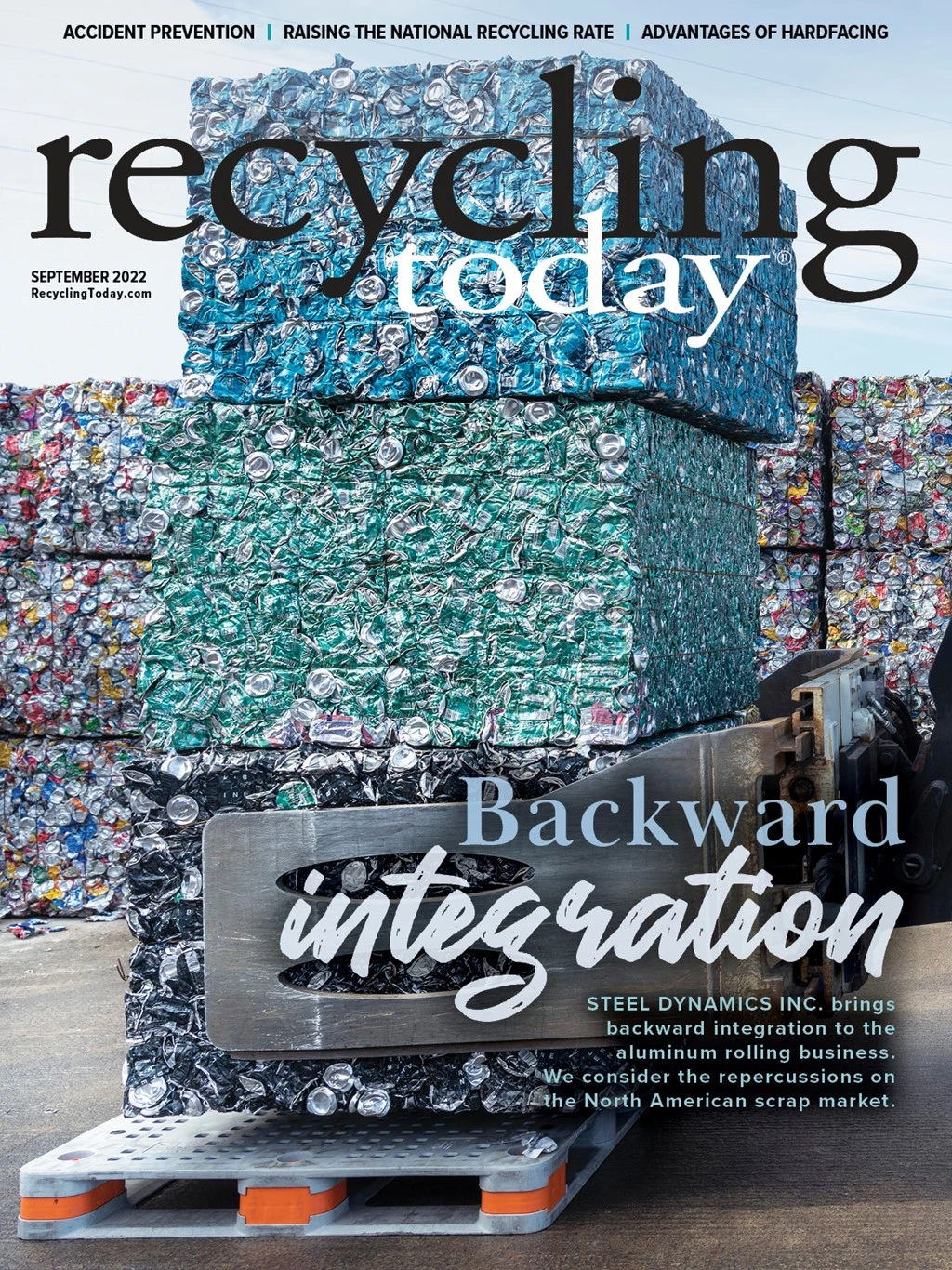In recent months, Steel Dynamics Inc. (SDI), Novelis and Manna Capital Partners have announced they each will be adding aluminum rolling mills and melt shops in the U.S., prompting questions about where the scrap to feed these operations will come from.
Novelis was the first company to announce its intentions in early May, saying it was investing $2.5 billion to build a low-carbon recycling and rolling plant in Bay Minette, Alabama. Site work is underway and the company expects to begin commissioning in mid-2025.
Later in May, Ball and Manna Capital Partners announced they were partnering to construct and operate a recycled-content aluminum can sheet rolling mill and melt shop in Los Lunas, New Mexico. Under the terms of their agreement, Ball is entering into a long-term supply agreement with Manna and intends to take a minority equity position in the mill.
Finally, SDI announced in July that it is building a 650,000-metric-ton recycled aluminum flat-roll mill and two supporting satellite recycled aluminum slab centers with an investment of $2.2 billion. Commercial production is planned to begin in the first quarter of 2025.
“The CMI often touts the intrinsic value of the aluminum can and its contribution to America’s recycling system.”
According to Ball, global aluminum can demand is expected to increase significantly by 2030, with North America estimated to account for a sizable part of that growth. Since 2016, industry demand for beverage cans in North America has grown 24 percent from 107 billion units to approximately 133 billion units in 2021, the company adds.
While North American can producers sometimes import aluminum can sheet coils to meet demand, “alliances like this one will allow Ball and its key customers to access more domestically produced aluminum can sheet,” Ball says of its partnership with Manna.
This month’s cover story in part considers where the feedstock for these mills is going to come from.
The used beverage can (UBC) recycling rate in the U.S. was 45 percent in 2020, according to the Can Manufacturers Institute (CMI), which says high demand for aluminum beverage cans necessitates increasing the UBC recycling rate. A higher UBC recycling rate also would enhance the resiliency of the domestic aluminum supply chain, leading to less imported material.
The CMI is seeking to increase the aluminum can recycling rate to 90 percent by 2050. It also is working to increase consumer understanding about the importance of aluminum can recycling and the ability to collect and sell used beverage cans for cash. The CMI also supports the passage and implementation of “well-designed” deposit systems at the state and federal levels to advance its goal.
The CMI often touts the intrinsic value of the aluminum can and its contribution to America’s recycling system. Whether promoting that value is enough to increase the UBC recycling rate without legislative mandates remains to be seen.
Get curated news on YOUR industry.
Enter your email to receive our newsletters.

Explore the September 2022 Issue
Check out more from this issue and find your next story to read.
Latest from Recycling Today
- Astera runs into NIMBY concerns in Colorado
- ReMA opposes European efforts seeking export restrictions for recyclables
- Fresh Perspective: Raj Bagaria
- Saica announces plans for second US site
- Update: Novelis produces first aluminum coil made fully from recycled end-of-life automotive scrap
- Aimplas doubles online course offerings
- Radius to be acquired by Toyota subsidiary
- Algoma EAF to start in April





